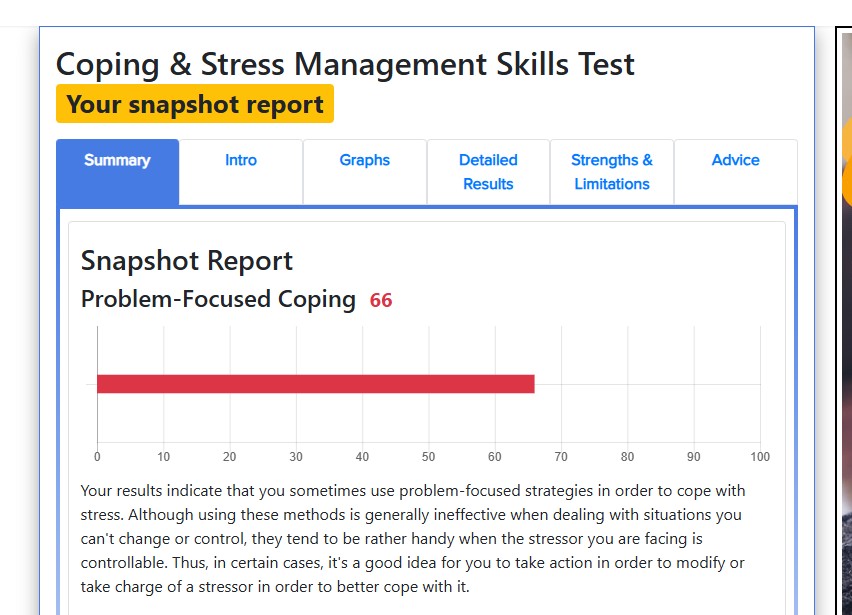
Based on my Coping & Stress Management Skills Test results, I learned that I tend to use problem-focused coping strategies, scoring a 66 on the assessment. This means I usually try to take action, plan, and solve problems directly when I face stress. These strategies work well when the situation is something I can control. However, the results also remind me that this approach is less effective when the stressor cannot be changed. In those cases, emotional coping, acceptance, and seeking support may be healthier options.
As I move forward in my professional career, it will be important to strengthen coping methods that complement my problem-focused style. This includes improving emotional regulation, recognizing when I cannot fix a situation, and maintaining a strong support system. Time management, self-care, and setting boundaries will also help me prevent burnout and maintain well-being.
Stress is a major concern for organizations today, and research shows that it contributes to conditions such as burnout, anxiety, depression, sleep disorders, and cardiovascular problems. These health issues affect employee productivity, satisfaction, and retention, making stress management a priority for employers.
In response, many organizations are implementing programs to support employee health. Common strategies include Employee Assistance Programs (EAPs), which offer counseling and mental health resources, and wellness initiatives such as fitness classes, mindfulness training, and health screenings. Flexible work arrangements—like remote work options and flexible scheduling—are increasingly used to help employees balance work and personal responsibilities. Companies are also investing in leadership training to help managers recognize stress and support their teams more effectively.
Overall, understanding my own coping style helps me prepare for the demands of my career. By developing a balanced approach to stress management and taking advantage of workplace wellness resources, I can continue to grow both personally and professionally.